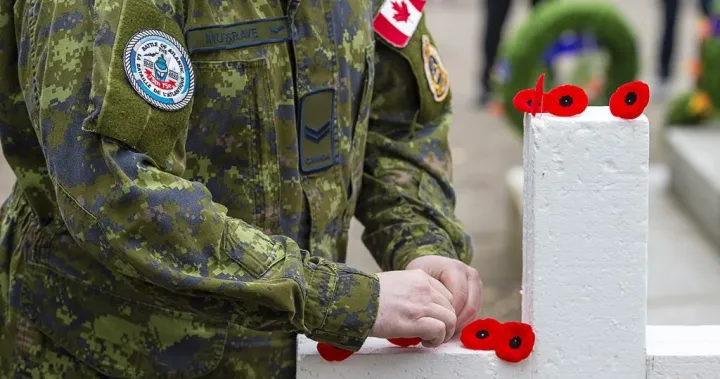Canada Should Be ‘World Leader’ on Alternative PTSD Therapies, Says Veteran
A Canadian Forces veteran who served in Afghanistan is advocating for Canada to become a “world leader” in alternative therapies for treating post-traumatic stress disorder (PTSD) and other post-combat traumas, particularly through the use of psychedelics.
Retired MCpl. Gordon Hurley asserts that treatments like ketamine and psilocybin (commonly known as “magic mushrooms”) can provide significant relief for veterans grappling with trauma and addictions. In an interview on The West Block aired on Sunday, ahead of Remembrance Day, Hurley emphasized the need for further research and coverage for physician-assisted therapies.
A Call for Action
“We’re in a unique position as a country, with such a liberal view on health care, that we should be able to be a world leader in providing alternative therapies,” Hurley stated. He highlighted the same commitment shown by the military when deploying personnel to war, suggesting that a similar approach should be taken with innovative treatments for veterans.
Hurley, who deployed to Afghanistan in the summer of 2008, experienced firsthand the challenges faced by soldiers. After being injured by an improvised explosive device, he returned to the battlefield just three weeks post-surgery, illustrating the physical and mental toll of military service.
The Need for Alternative Treatments
Over 40,000 Canadians served in Afghanistan, and many returned with not just PTSD, but also traumatic brain injuries and health issues stemming from toxic burn pit exposure. Research indicates that recent veterans face higher rates of mental health and addiction issues compared to older veterans and the general Canadian population.
Currently, Veterans Affairs Canada is exploring the use of ketamine for treating traumatic brain injuries and depression. However, no similar projects have been initiated for psilocybin, despite a growing interest in psychedelic treatments across Canada.
A Senate committee report from last December urged the federal government to conduct a comprehensive research program on psychedelics for veterans suffering from PTSD. The report warned that Canada risks falling behind other countries, such as the United States, which has funded research into these treatments.
Perspectives on Treatment
Hurley expressed that while traditional Western treatments, including prescription drugs and antidepressants, are effective, alternative options should also be explored. He shared his personal experiences receiving psychedelic treatments in Mexico from clinics run by Canadian doctors, emphasizing their effectiveness in alleviating symptoms.
In addition to psychedelics, Hurley mentioned stellate ganglion block treatment, which numbs nerves in the neck and can “reset the nervous system.” Described as “miraculous” for PTSD treatment, this method has been studied in various Canadian hospitals and universities.
Recommendations for Government Action
Hurley believes the government should provide coverage for assisted treatment programs that enable doctors to work closely with veterans to ensure they receive appropriate therapies and dosages. “The doctor is going to have specific training to deal with psychedelics and how that integrates into a person’s life,” he explained, advocating for a structured approach to incorporating these treatments into veterans’ care.
“We’re so new to it. It’s not anyone’s fault, but we should really be ahead of the curve on this,” he urged, calling for a proactive stance on alternative therapies for veterans.
Thank you for taking the time to read this article! Your thoughts and feedback are incredibly valuable to me. What do you think about the topics discussed? Please share your insights in the comments section below, as your input helps me create even better content.
I’m also eager to hear your stories! If you have a special experience, a unique story, or interesting anecdotes from your life or surroundings, please send them to me at whatsissue@gmail.com. Your stories could inspire others and add depth to our discussions.
If you enjoyed this post and want to stay updated with more informative and engaging articles, don’t forget to hit the subscribe button! I’m committed to bringing you the latest insights and trends, so stay tuned for upcoming posts.
Wishing you a wonderful day ahead, and I look forward to connecting with you in the comments and reading your stories!
